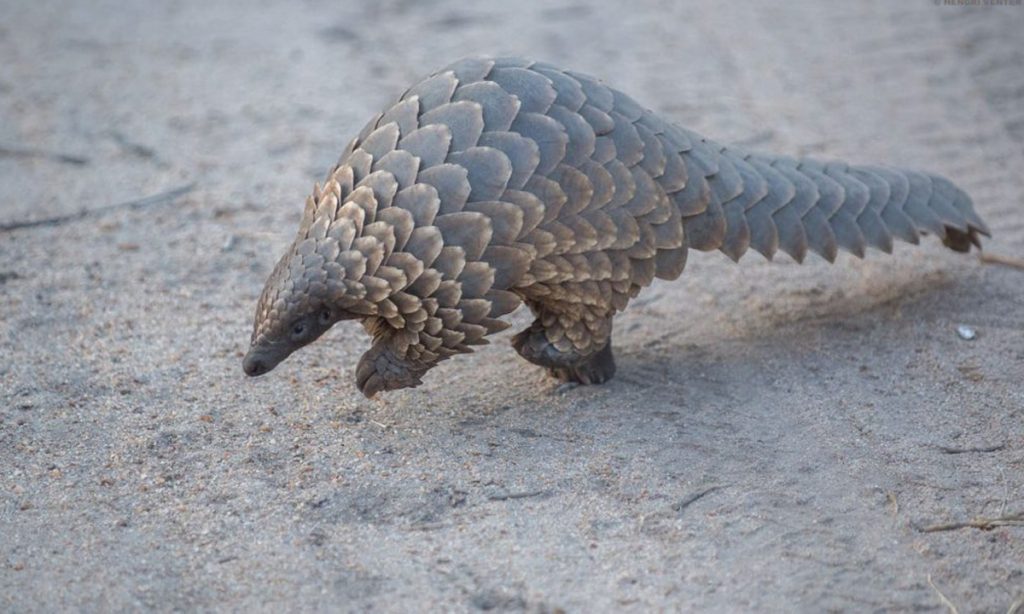
This unusual, armadillo-like creature is the most trafficked animal on the planet — even more than rhinos and elephants — and now South Africans are trying to save it.
Two conservation organizations recently announced plans to build a “pangalorium,” a pangolin refuge in Johannesburg that will help care for African pangolins seized by customs officers until they are healthy enough to be released back into the wild. They will also deploy specially-trained dogs at South African borders to sniff out pangolins or scales being transported by smugglers.
“Most animals arrive in a very poor state of health when they are brought to us,” said Ray Jansen, chairman of the African Pangolin Working Group, which is partnering with Ichikowitz Family Foundation for this campaign.
The pangolins often suffer brutal injuries and wounds from electrical fences and other forms of capture, said Jansen. By the time they arrive at rehabilitation centers, they are usually highly stressed and reluctant to eat or drink.
Pangolins are the world’s most trafficked animal, according to the IUCN. Conservationists estimate that since 2000, over 1 million pangolins have been poached and trafficked internationally.
From Africa to Asia
Eight species of pangolin exist globally; four in Asia and four in Africa. The IUCN considers all to be threatened with extinction — due, in part, to illegal trade.
The black market trade is particularly active in China, where the pangolin’s distinctive keratin scales are used for traditional medicine and its meat is considered a delicacy. But as Asia’s native populations have dwindled, traffickers are now turning their sights to the pangolins in Africa. Last year, officials seized more than 49 tons of illegally-trafficked pangolin scales, according to the African Pangolin Working Group.
Locally, in South Africa and other African countries, pangolins are also hunted for their meat and used in religious ceremonies.
“Poaching in Africa is no longer just a conservation issue,” Ivor Ichikowitz, chairman of the Ichikowitz Family Foundation said in a statement. “It is a security issue that threatens the stability and social fabric of the continent. Just as illegal trade in rhino horn and ivory are funding criminal activities from terrorism, to drug and human trafficking, the rapidly increasing illegal trade in pangolins poses a significant threat to Africa’s security. We cannot idly standby and allow this to happen.”
Thankfully, people are finally starting to take a stand for these underdogs.




